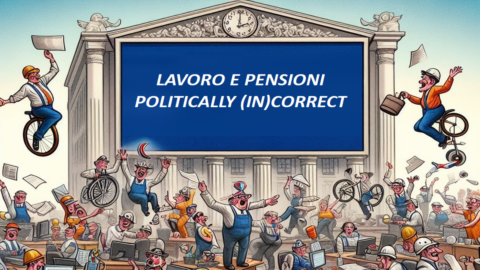The severance pay of 32 million euros that Martin Winterkorn will pocket is certainly a stratospheric sum that most mere mortals have not seen even in three generations but it will not be enough to erase the eternal infamy that will accompany the outgoing Volkswagen CEO to the door.
When a top manager leaves with a staggering severance pay, popular (but more often populist) indignation skyrockets. But in these cases you have to be careful of the context, the type of market in which you operate and the reference parameters with which the severance pay is packaged. Generally top managers are not characters loved by the crowds, especially for their exorbitant earnings, but they are a bit like actors or football players. They earn figures that cry out for revenge and are an insult to poverty but are often unique characters and are paid as such.
Take the case of Sergio Marchionne. Even the fees of the CEO of FCA are stellar but Marchionne has accomplished a feat that has few precedents: about ten years ago he inherited a group like Fiat which, in the opinion of all financial analysts, was technically bankrupt and transformed into the seventh global automotive group. Honestly, how many would have been able to do the same? Of course, Marchionne also earns astronomical figures but is it better to overpay a manager who saves and relaunches a company or to stick to principles and accompany a company to its bankruptcy between tears and regrets? It would be curious to ask workers and shareholders on this point.
When a top manager leaves his company the severance pay that often accompanies him is often impressive but is usually the result of duly signed contracts between the manager and the company. Who does not remember the record liquidations received by the major Italian bankers just a few years ago? Or, the one so indecorous in relation to the results achieved, of Giancarlo Cimoli when he left the state railways?
We share Thomas Piketty's abhorrence of the growing injustices that dominate contemporary societies, but the crux of Herr Winterkorn's outrage at superliquidation is not this. One can argue about the enormity of a severance pay but if it is the result of the lifelong work of a manager of rare competence, that liquidation has a foundation. But in the case of Winterkorn? He now says it's the fault of emissions rigged by Volkswagen it's not his, but was he or was he not the supreme boss of the German house? Was he or not the supermanager who boasted of knowing everything about his company?
How do you grant a severance pay of over 28 million euros to a manager who has the ultimate responsibility for bringing an industrial group of the caliber of Volkswagen to ruin? Sure, there are contracts and probably the contracts authorize that severance pay. But together with and beyond contracts, a manager should also have dignity. When faced with money, many people forget it. But the CEO of VW had only one way not to completely lose face: to give up the liquidation for the incomparable damages he had done. Even more than the 28 billion is the prize for the disastrous epilogue of its management that offends and that, yes, cries out for revenge.





